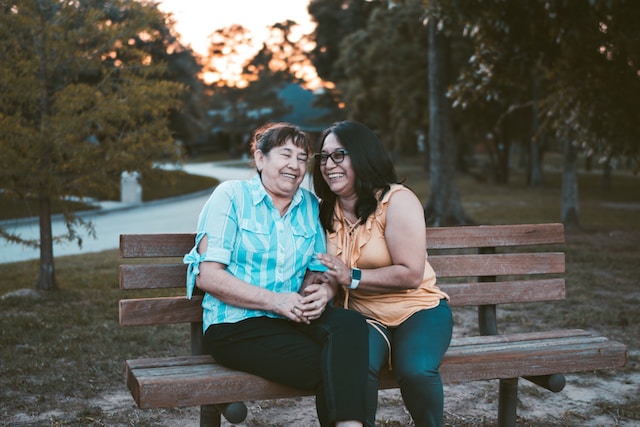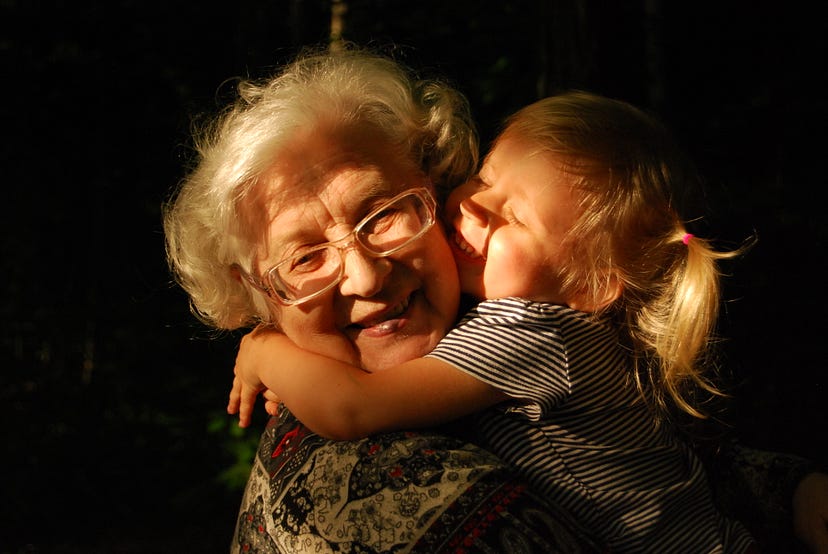Caregiver burnout prevention is an essential aspect of maintaining a healthy caregiving environment for both the caregiver and the care recipient. Identifying early warning signs of burnout and utilizing helpful tactics to manage the pressure is key for preserving a healthy atmosphere for both caregiver and care recipient.
In this guide, we’ll provide you with strategies to help maintain your well-being while caring for your loved one, such as embracing the caregiving choice and delegating tasks effectively. We’ll discuss how embracing your caregiving choice can empower you through difficult moments and celebrate accomplishments along the way.
You’ll also learn about spreading responsibilities among others by delegating tasks effectively, seeking professional assistance when needed, and establishing clear boundaries within caregiving roles. Furthermore, we will delve into utilizing respite care services as a valuable resource to prevent exhaustion and maintain personal relationships outside of caregiving duties.
Finally, our discussion will touch upon joining caregiver support groups as a means to connect with like-minded individuals who share similar experiences while setting realistic expectations in order to cope with daily stressors more effectively. By seeking help when needed and treating mental health issues promptly, you’ll be better equipped to handle the demands of caregiving without succumbing to burnout.
Table of Contents:
- Recognizing the Signs of Caregiver Burnout
- Embracing Your Caregiving Choice
- Spreading Responsibility Among Others
- Respite Care: Your Solution to Caregiver Burnout
- Maintaining Personal Relationships Outside Caregiving Roles
- Joining Caregiver Support Groups
- Realistic Expectations: The Key to Preventing Caregiver Burnout
- Seeking Help When Needed
- FAQs in Relation to Caregiver Burnout Prevention
- Nurturing Sustainable Well-being: Embracing a Holistic Approach to Caregiver Burnout Prevention
Recognizing the Signs of Caregiver Burnout
Early detection of caregiver burnout is crucial in preventing its onset.
Symptoms of caregiver burnout may involve feeling worn out, burdened by stress, anxiousness, depression and a shift in outlook from upbeat to pessimistic.
By being aware of these signs and addressing them promptly, caregivers can take necessary steps towards self-care.
Fatigue and exhaustion
Caregivers often experience physical exhaustion due to their caregiving responsibilities.
It’s essential for those taking care of elderly loved ones to recognize when they’re feeling overwhelmed or tired so that they can prioritize rest and prevent burnout.
Stress and anxiety
The caregiving role comes with various challenges that can cause increased levels of stress and anxiety.
Acknowledging and managing these emotions through seeking support from those familiar with your situation can help you develop effective coping strategies.
Depression or mood changes
If you notice feelings of sadness or hopelessness while providing care for an elderly individual, it could be a sign that you’re experiencing caregiver burnout.
If you’re feeling overwhelmed, don’t be afraid to reach out for professional help; NAMI provides resources such as therapy options that can aid in managing depression or anxiety.
Learn more about resources like therapy options through organizations like the National Alliance on Mental Illness (NAMI).

Embracing Your Caregiving Choice
Prevent caregiver burnout by focusing on positive reasons for providing care.
Celebrate small victories and acknowledge your efforts to maintain a healthy mindset.
Discuss feelings and frustrations with supportive family members or friends who understand the challenges of caregiving.
Remembering the motivation behind caregiving
Remind thyself why thou elected this role to begin with.
Keeping motivations at heart will help sustain you through difficult times.
Celebrating accomplishments
- Acknowledge milestones like improved health conditions or increased independence in daily tasks.
- Show gratitude towards yourself by practicing self-care and treating yourself occasionally.
- Share successes with other caregivers to benefit from hearing about positive experiences.
Open communication with support network
Maintain open lines of communication with friends, family members, or join online forums for emotional support.
Don’t feel helpless during challenging moments while providing care for your loved one.
Spreading Responsibility Among Others
Sharing caregiving duties among family members or professionals helps prevent caregiver burnout and stress.
Delegating tasks to others
Create a list of caregiving responsibilities and discuss with family members who can assist in taking care of certain tasks.
Caregiver burnout can be prevented by spreading the workload.
Seeking professional assistance when needed
If you feel overwhelmed by your caregiving role, consider hiring professional help such as home health aides or visiting nurses.
These professionals provide care for elderly individuals while giving caregivers much-needed respite time.
Establishing clear boundaries within caregiving roles
- Maintain open communication: Discuss expectations openly with family members involved in providing care.
- Create schedules: Designate specific times for each caregiver to perform their duties.
- Prioritize self-care: Ensure that every caregiver has enough time off from their responsibilities to focus on themselves.
By implementing these strategies, you can ensure a more balanced approach towards caring for an elderly loved one while reducing the risk of caregiver burnout and stress.

Respite Care: Your Solution to Caregiver Burnout
As a caregiver, it is essential to remember that taking care of yourself is just as important as caring for your loved one; respite care services can provide temporary relief from such responsibilities and reduce stress levels, thereby preventing burnout.
Respite care services offer temporary relief from caregiving responsibilities, preventing caregiver burnout and reducing stress levels.
Types of Respite Care Services
- In-home respite: Professional caregivers provide assistance in your home.
- Adult day centers: Your loved one attends a supervised program during the day.
- Nursing homes/assisted living facilities: Temporary stays at these facilities give both parties involved an opportunity for some space and relaxation.
Benefits of Regular Respite Care
Regular respite care helps prevent caregiver burnout, allowing you to recharge and return to your caregiving role with renewed energy and focus.
Finding Affordable Services
Reach out to local senior centers or your state’s Department on Aging to find cost-effective solutions in your area. Non-profits may provide financial aid to offset the expense of respite care.
Maintaining Personal Relationships Outside Caregiving Roles
Don’t let caregiving responsibilities consume your life, prioritize self-care and personal relationships.
Importance of Self-Care
Don’t forget about your own needs, neglecting self-care can lead to caregiver burnout and feeling helpless.
Engaging in Hobbies and Interests
Pursuing hobbies helps relieve stress and combat feelings of isolation.
- Spend time with friends or family members regularly.
- Join clubs or groups related to your favorite pastimes.
- Dedicate specific days each week for pursuing personal interests without guilt.
Maintaining a Healthy Lifestyle
Regular exercise and eating nutritiously ensures optimal energy levels throughout the day and reduces physical exhaustion.

Joining Caregiver Support Groups
Connect with peers who understand the challenges of caregiving to manage stress, reduce isolation, and increase knowledge about community-based programs. Check out support groups for valuable resources.
Benefits of joining caregiver support groups
- Emotional support: Share experiences with others facing similar situations to validate feelings and provide a sense of camaraderie.
- Educational opportunities: Attend guest speakers or workshops on relevant caregiving topics, such as legal issues or financial planning.
- Coping strategies: Learn from other caregivers’ successes and failures to develop effective techniques for handling caregiver stress and preventing burnout.
Finding local or online support communities
Contact local organizations like hospitals, senior centers, or non-profit agencies focused on aging services to find a caregiver support group near you. Check out online forums like the Caregiver Action Network (CAN) for virtual platforms to connect with fellow caregivers.
Learning from others’ experiences
Tap into the collective wisdom of those who have walked in your shoes before to navigate caregiving challenges. Listen attentively during meetings and ask questions to gain insights that will help make your journey smoother while avoiding common pitfalls along the way.
Realistic Expectations: The Key to Preventing Caregiver Burnout
Understanding your loved one’s medical conditions and setting clear expectations within caregiving roles can help prevent caregiver burnout.
- Educate yourself on their health issues by consulting with healthcare professionals or visiting credible online resources like the National Institute on Aging.
- Determine which tasks you can handle and which require assistance from others, and create a schedule that accommodates both your personal life and caregiving responsibilities.
- Prioritize open communication among all parties involved in the caregiving process to ensure everyone understands their role and feels supported.
Find humor in everyday situations and practice relaxation techniques like deep breathing exercises or meditation to cope with daily stressors. Seek support from mental health professionals who specialize in caregiver stress management strategies if needed. Remind yourself that tending to your own needs is as essential as looking after others.
Seeking Help When Needed
Acknowledging emotions as part of the caregiving process is essential for developing effective coping strategies.
If feeling down or anxious, it’s important to seek medical assistance as these can be managed with proper treatment.
Turning to additional help when required ensures the wellbeing of both parties involved.
Recognizing when professional help is needed
Don’t ignore signs that your mental health may be suffering due to caregiver stress.
Indicators include feeling overwhelmed, experiencing mood swings, and having difficulty concentrating or sleeping.
Seek help from a mental health practitioner to assist with regulating emotions and keeping life in equilibrium.
Treating mental health issues promptly
- Therapy: A licensed therapist can offer valuable insights into understanding and managing caregiver burnout symptoms while providing tailored coping mechanisms.
- Medication: In some cases, medication may be prescribed by a healthcare provider to alleviate symptoms of depression or anxiety related to caregiving responsibilities.
- Lifestyle changes: Incorporating regular exercise, proper nutrition, and sufficient sleep into your daily routine can significantly improve overall mental health during challenging times.
Don’t forget about resources available for elderly individuals under your care – such as respite care or adult day programs – which can lighten the load on caregivers while ensuring their loved ones receive adequate support.
FAQs in Relation to Caregiver Burnout Prevention
How to Prevent Caregiver Burnout
Recognize signs of stress and fatigue, delegate tasks, utilize respite care services, maintain personal relationships, join support groups, set realistic expectations, practice self-care, and engage in hobbies.
The Importance of Caregiver Burnout Prevention
Preventing caregiver burnout is crucial for maintaining physical and mental health, providing quality care, and preserving personal relationships.
Overcoming Caregiver Burnout
Acknowledge emotions, develop coping strategies, delegate tasks, utilize respite care, maintain personal connections, engage in relaxing hobbies, and join support groups.
Resources for Help with Caregiver Burnout Prevention
Join caregiver support groups, either locally or online, for emotional encouragement and practical guidance from people who understand your situation firsthand. Check out credible sources like Family Caregiver Alliance and AARP Caregiving for additional resources.
Nurturing Sustainable Well-being: Embracing a Holistic Approach to Caregiver Burnout Prevention
Preventing caregiver burnout is crucial for both the caregiver and their loved one.
Recognize the signs of burnout and take action before it’s too late.
Embrace your caregiving choice and don’t be afraid to ask for help.
Spread responsibility among others to avoid feeling overwhelmed.
Utilize respite care services to take a break and recharge.
Maintain personal relationships outside of caregiving roles to avoid isolation.
Join support groups to connect with others who understand your struggles.
Set realistic expectations for yourself and your loved one.
Remember, taking care of yourself is just as important as taking care of your loved one.
By utilizing these techniques, and getting assistance if needed, you can look after your cherished one while also keeping up a sound way of life for yourself.



